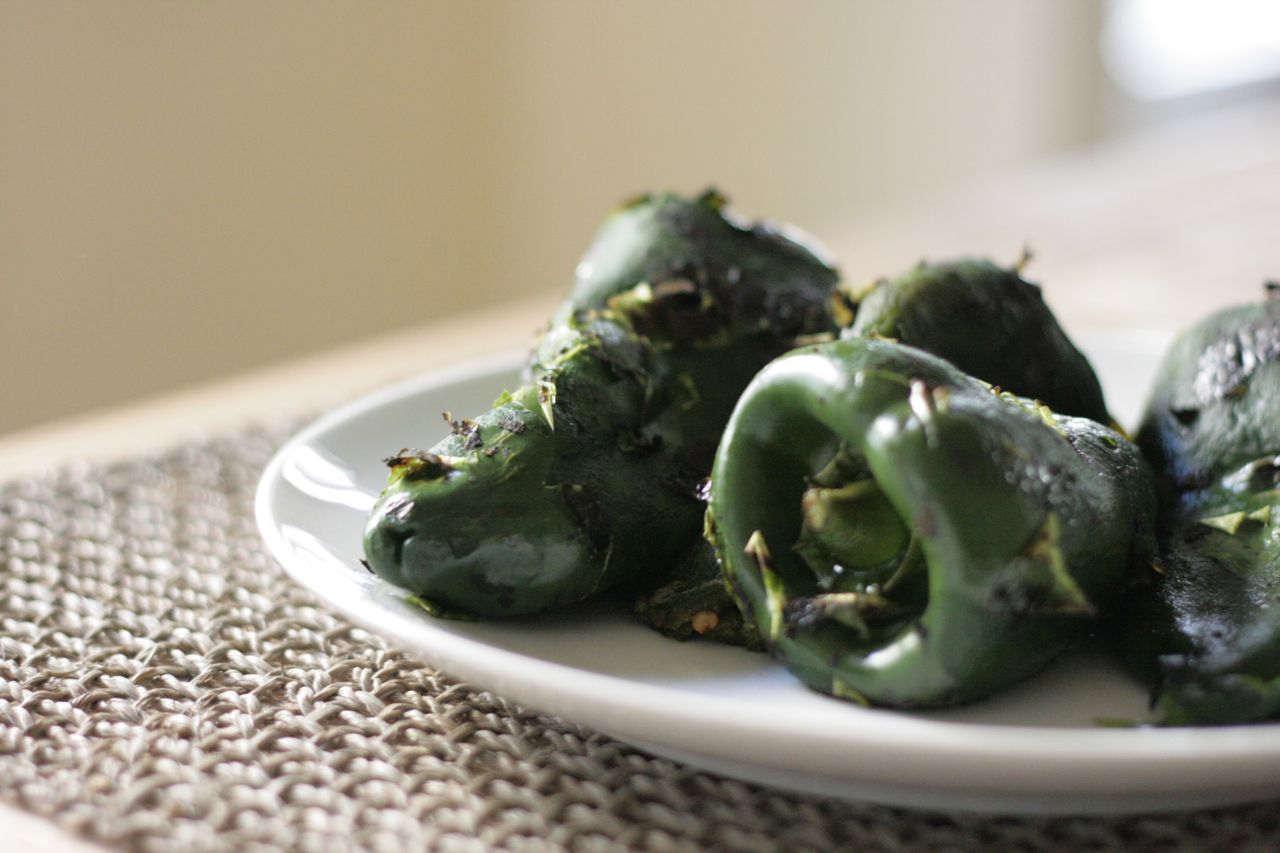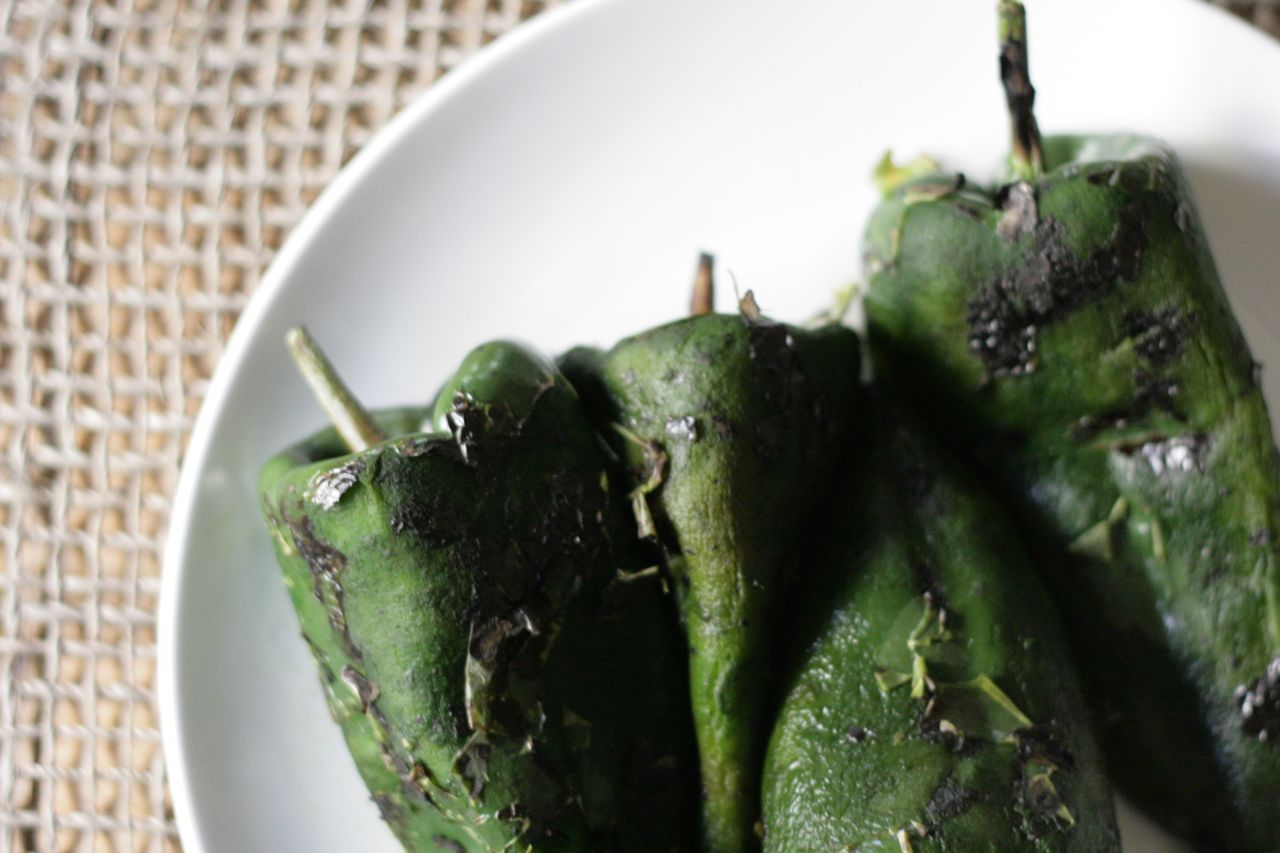When I was newly married, my husband worked as a retail manager. It was a short-lived period of our life that often left me alone for dinner while he worked through the evening rush.
One night, I made stuffed peppers. They were red, brimming with couscous and herbs, probably topped with gooey cheese. I thought nothing of it, but Andrew came home from work that night and said "You made stuffed peppers? Without me?!" At the time, stuffed peppers seemed like quite an occasion. Jokingly, he made me promise I wouldn't make stuffed peppers again unless we were both present to enjoy the meal. Reading this poem by Nancy Willard, I couldn't help but smile and remember fondly those early years of marriage, especially in light of the eight year (!) anniversary we celebrated last week.
How to Stuff a Pepper
Now, said the cook, I will teach you
how to stuff a pepper with rice.
Take your pepper green and gently,
for peppers are shy. No matter which side
you approach, it's always the backside.
Perched on green buttocks, the pepper sleeps.
In its silk tights, it dreams
of somersaults and parsley,
of the days when the sexes were one.
Slash open the sleeve
as if you were cutting a paper lantern,
and enter a moon, spilled like a melon,
a fever of pearls,
a conversation of glaciers.
It is a temple built to the worship
of morning light.
I have sat under the great globe
of seeds on the roof of that chamber,
too dazzled to gather the taste I came for.
I have taken the pepper in hand,
smooth and blind, a runt in the rich
evolution of roses and ferns.
You say I have not yet taught you
to stuff a pepper?
Cooking takes time.
Next time we'll consider the rice.
Used by permission of Nancy Willard in care of the Jean V. Naggar Literary Agency, Inc (permissions@jvnla.com) @ 1974 by Nancy Willard. Find Nancy Willard online at http://www.openroadmedia.com/nancy-willard.
To cook, one must learn by doing. You can view television shows, read cookbooks, and even watch your parents or grandparents over the stove, but eventually you must roll up your sleeves and follow a recipe yourself, and today's poem offers instructions to both novice and seasoned cooks.
In the first lines, the speaker confidently remarks that readers will learn to stuff peppers. Soon we are taught to "slash open the sleeve/ as if you were cutting a paper lantern," and coax an inherent shyness out of peppers during the cooking process. But three stanzas later, we are still talking about peppers and are promised that next time, "we'll consider the rice."
If you feel a sense of disappointment, don't, because there is a great lesson here. Cooking, like all ventures in life worth doing well, takes time, and going off course is part of the process. It's like talking with a good friend. You sit down, intent to discuss a series of mundane and not so mundane topics, when you find yourself lost on a tangent that lasts an hour. By then your tea is cold, the afternoon has disappeared, and the only option that remains is to scribble another meeting in your calendar to pick up where you left off.
Cooking is not about the peppers, ingredients, or recipe instructions, but the discoveries we make during the process. We are nourished by knife cuts, smells of the season, and family and friends coming alongside us in the kitchen. Our best cooking happens just as Willard's poem unfolds, by beginning with a single task, then losing ourselves in a trance of memory when we realize the vegetable we hold in our hand "is a temple built to the worship/ of morning light."
Stuffed Poblanos with Goat Cheese
They're not terribly photogenic, but what the peppers lack in beauty, they make up for in satisfaction. I took a Tex-Mex approach with these peppers. The cumin-laced sauce plays nicely against tangy goat cheese, and a hearty filling of beans and whole grains makes this a wonderful vegetarian main course.
For the peppers
4 poblano peppers
1 cup cooked quinoa
1 can pinto beans or black beans
1/4 cup lightly packed cilantro
4 ounces goat cheese, room temperature
3/4 cup grated Monterey Jack cheese, divided
Salt and freshly cracked pepper
For the sauce
1 28 oz. can tomatoes
1 shallot, peeled and roughly chopped
2 garlic cloves, peeled
2 teaspoon cumin
1 teaspoon ancho chile powder
1 teaspoon salt
Preheat the oven to 350 degrees.
Over a gas flame, roast the peppers for about 2 minutes per side, turning with tongs, until the skin is blistered and browned. Place in a large bowl and cover with plastic wrap. Let them sit for 15 minutes, then gently rub off the skin as best you can. Carefully slice off the stems, remove the seeds, and slice in half lengthwise.
Add the sauce ingredients to a sturdy blender and blend until smooth; pour into an 8x13-inch baking dish. (If you'd like a bit more heat, add a pinch of cayenne pepper!)
Add the quinoa, beans, cilantro, goat cheese, 1/4 cup monterey jack, and 1/2 teaspoon salt to a medium bowl. This is the messiest part, but the most fun. Really use your hands to mush up the thick filling. Then use one hand to cradle a loose pepper skin while you dollop some filling (about 1/4 cup) on top, mounding it until firm; repeat with all the peppers and gently place them into the sauce.
Once the peppers are snuggled in, top with remaining 1/2 cup grated Monterey Jack cheese.
Bake for 35-40 minutes, or until the cheese is melted and the sauce has reduced slightly.






